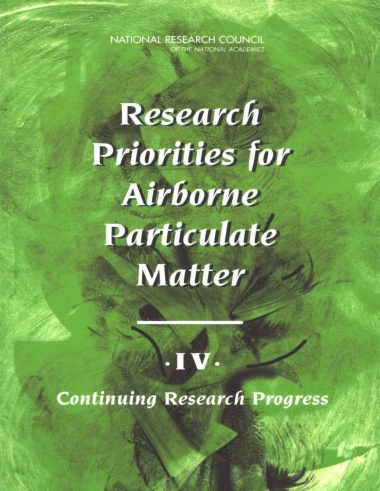In 1997, the U.S. Environmental Protection Agency (EPA) established regulatory standards
to address health risks posed by inhaling tiny particles from smoke, vehicle
exhaust, and other sources. At the same time, Congress and the EPA began a multimillion
dollar research effort to better understand the sources of these airborne particles,
the levels of exposure to people, and the ways that these particles cause disease.
To provide independent guidance to the EPA, Congress asked the National
Research Council to study the relevant issues. The result was a series of four reports
on the particulate-matter research program. The first two books offered a conceptual
framework for a national research program, identified the 10 most critical research
needs, and described the recommended timing and estimated costs of such
research. The third volume began the task of assessing initial progress made in
implementing the research program. This, the fourth and final volume, gauged
research progress made over a 5-year period on each of the 10 research topics. The
National Research Council concludes that particulate matter research has led to a
better understanding of the health effects caused by tiny airborne particles.
However, the EPA, in concert with other agencies, should continue research to
reduce further uncertainties and inform long-term decisions.
- Cover
- Front Matter
- Summary
- 1 Introduction
- 2 Committee's Approach to Evaluation of Research Progress
- 3 Synthesis of Research Progress on Particulate Matter
- 4 Looking Across the Research Topics
- 5 The Challenges Ahead for Particulate Matter Research
- 6 The Way Forward
- 7 Conclusion
- References
- Terms and Abbreviations
- Appendix A: Biographical Information on the Committee on Research Priorities for Airborne Particulate Matter
- Appendix B: The Committee's Statement of Task
- Appendix C: Detailed Assessment of Particulate Matter Research Progress

